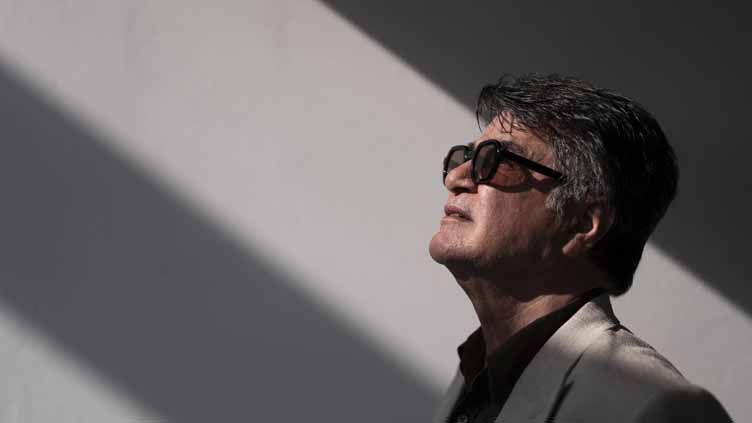Dissident Iranian filmmaker Jafar Panahi's presence in Cannes speaks volumes

Entertainment
“I’m flying back to Tehran on Sunday,” he says.
CANNES, France (AP) — Before this week, the dissident Iranian filmmaker Jafar Panahi hadn’t attended the premiere of one of his films in more than 15 years.
Panahi, one of the leading international directors, was banned from traveling out of Iran in 2009 for attending the funeral of a student killed in the Green Movement protests, a judgment later extended to two decades. But even when placed under house arrest, Panahi kept making movies, many of which are among the most lauded of the century. He made 2011’s “This Is Not a Film” on an iPhone in his living room. “Taxi” (2015) was clandestinely shot almost entirely within a car.
These and other films of Panahi’s premiered to considerable acclaim at international film festivals where the director’s conspicuous absence was sometimes noted by an empty chair.
When his last film, 2022’s “No Bears,” debuted, he was in jail. Only after his hunger strike made worldwide news was Panahi — who had gone to Tehran’s Evin Prison to inquire about his friend, the then-jailed filmmaker Mohammad Rasoulof — released, in early 2023.
Two years later, with his travel ban finally lifted, Panahi arrived at the Cannes Film Festival with a film, “It Was Just an Accident,” riven with the fury and pain of incarceration by the Islamic Republic.
“Being here does matter, of course. But what’s even more important is that the film is here,” Panahi said in an interview on a Palais terrace. “Even when I went to jail, I was happy that the film was done. I didn’t mind being in prison because my job was done.”
Yet Panahi’s appearance in Cannes, where the film premiered Tuesday, carries tremendous meaning — and risk — for a filmmaker who has played such a massive role in international cinema in absentia. But for a director who has previously had his films smuggled out of Iran on USB drives, risk is a constant for Panahi.
“Yes, this is an ongoing risk,” he says, speaking through an interpreter. “Now it will probably be higher. But the Iran situation is unpredictable. It changes everyday. New politics everyday. So we have to see what happens the day we go back.”
Last year, in order to reach Cannes, Panahi’s countryman Rasoulof crossed the Iranian border on foot before resettling in Germany. (His film, “The Seed of the Sacred Fig,” was ultimately nominated for best international film at the Oscars.) Panahi says they speak every other day. After the premiere of “It Was Just an Accident,” Rasoulof texted Panahi to congratulate him on the moment.
Unlike Rasoulof, though, Panahi — whose “No Bears” captured him emotionally gazing across, but not crossing, the border — has no plans to flee.
“I’m flying back to Tehran on Sunday,” he says.
“It’s simple. I’m unable to live here,” he elaborates. “I have no ability to adapt to a new country, a new culture. Some people have this ability, this strength. I don’t.”
What Panahi does have, as his latest film shows once again, is the ability to deftly lace complicated feelings of resistance, sorrow and hope into gripping movies of elegant, if heartbreaking, composition.


